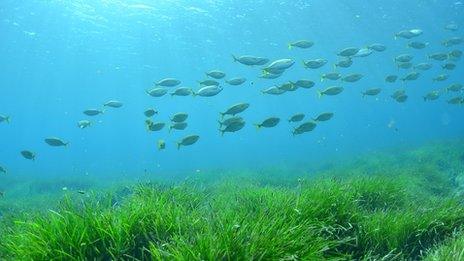Tees estuary: Oysters and seagrass to be used to restore habitat
- Published
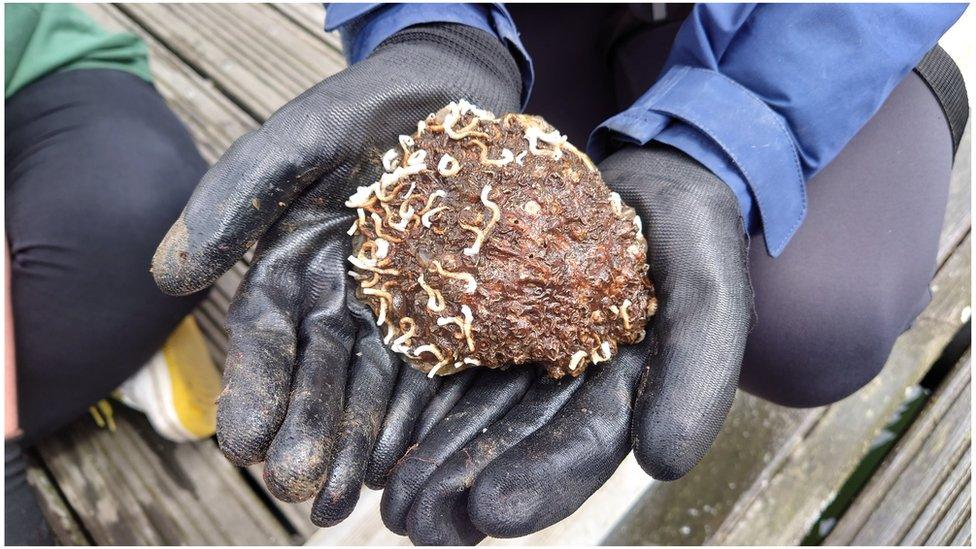
A native oyster which is capable of filtering huge amounts of seawater
The mouth of the River Tees is to be repopulated with oysters and seagrass to help boost marine life.
Tees Rivers Trust says the project will help restore marine habitats and help spawning fish return to the river.
Seagrass and oysters were once present in the estuary but were lost due to a combination of over exploitation and deteriorating water quality.
The programme will be funded by the Department for Environment, Food and Rural Affairs (Defra).
Adult oysters from Scotland will be used to set up an oyster nursery in Hartlepool Marina over the next five years.
Research into seagrass seed collection will be developed in Hartlepool Dock.
Both were chosen for the Tees estuary because of their benefits.
A single oyster can filter 150 litres of water a day through its gills helping to remove contaminants while seagrass can absorb carbon from water and provide small fish with valuable feeding grounds.
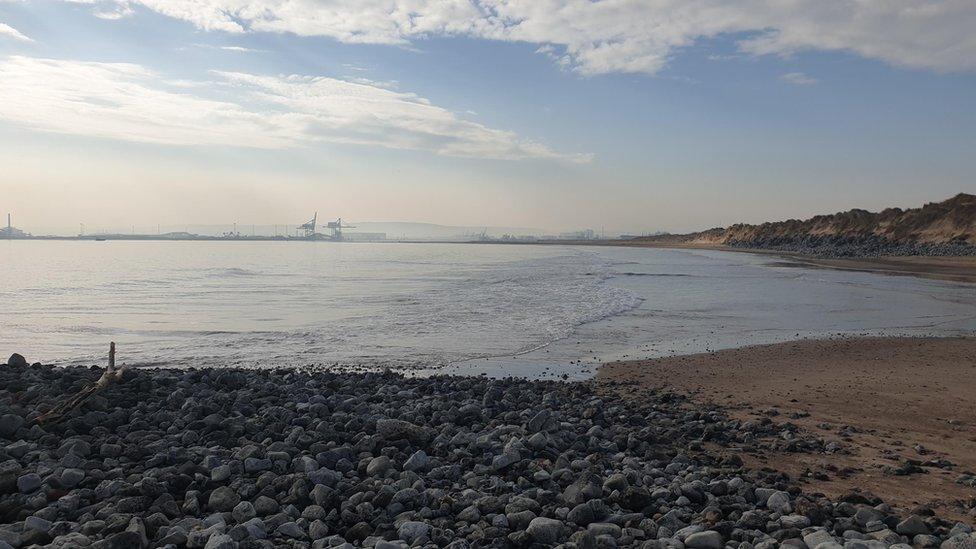
Tees Rivers Trust will plant seagrass at North Gare
Experts believe the two species would form a coastal defence - with oyster reefs and seagrass meadows helping to keep sediment stable and prevent coastal erosion.
In the longer term, conservationists will look to use stones, gravel and broken scallop shells - known as "cultch" - to line the river bed and provide the right habitat for oysters.
Programme manager Judy Power said: "This landscape-scale project will begin restoring functioning intertidal and marine habitats to the Tees and improve passage for migratory fish species along the full river.
"It's good to start putting back what has been taken out of it. We want to transform the Tees into a centre of excellence for habitats."
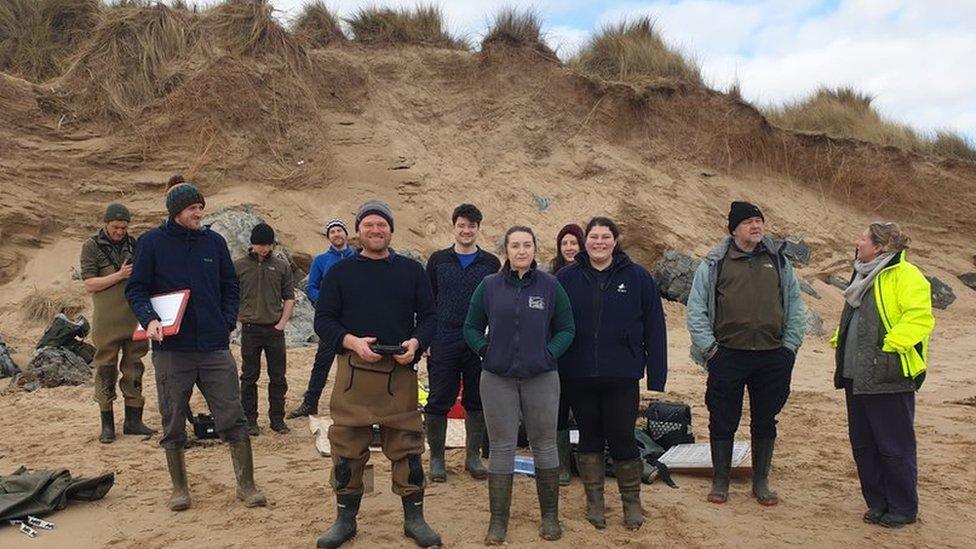
Staff from Tees Rivers Trust have surveyed potential seagrass sites
The trust has previously worked upstream to control invasive species and restore habitats.
The £1m from Defra will now extend the work into the estuary.
Four new staff members have been recruited for the project, which will work with schools and communities on the importance of restoring marine ecosystems.

Follow BBC North East & Cumbria on Twitter, external, Facebook, external and Instagram, external. Send your story ideas to northeastandcumbria@bbc.co.uk, external.
Related topics
- Published5 April 2022
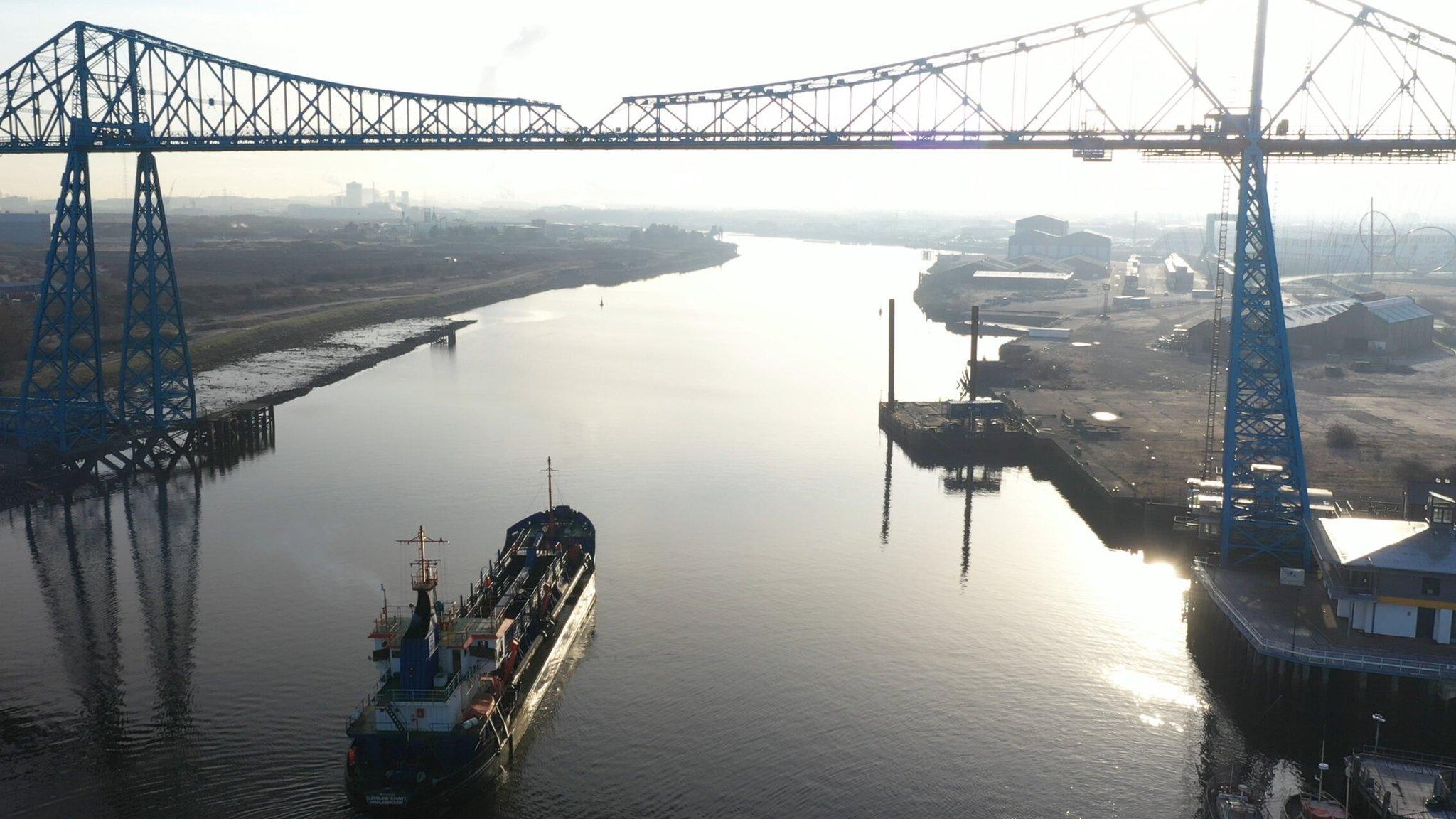
- Published29 June 2022
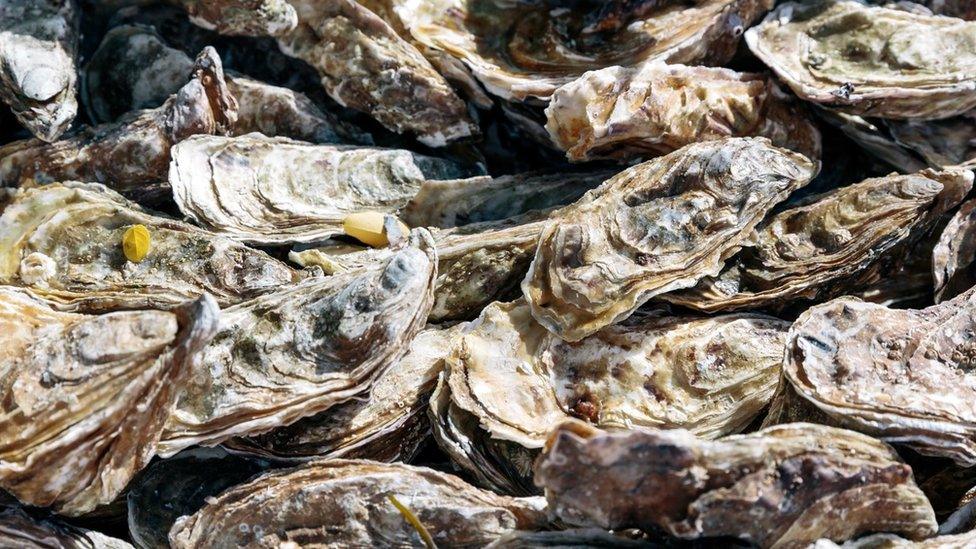
- Published7 June 2022
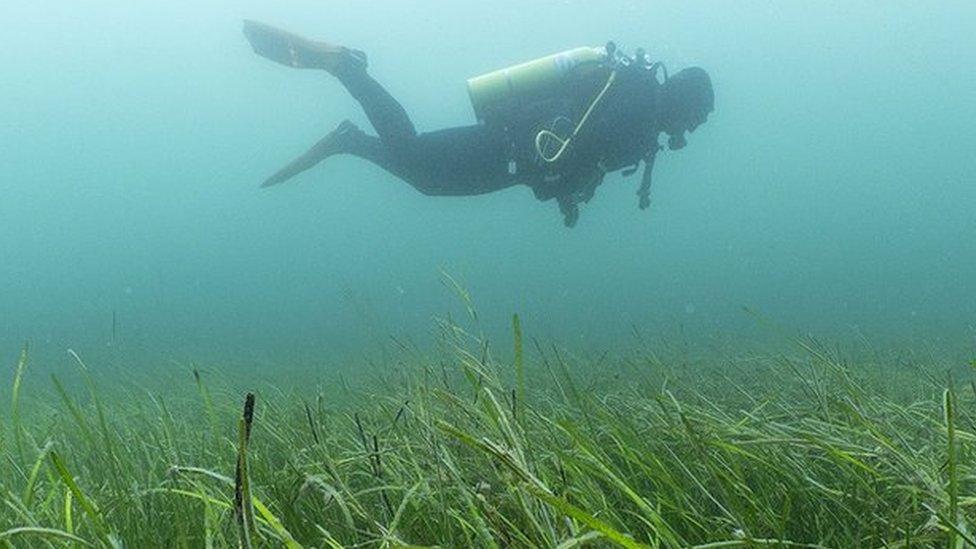
- Published13 March 2021
